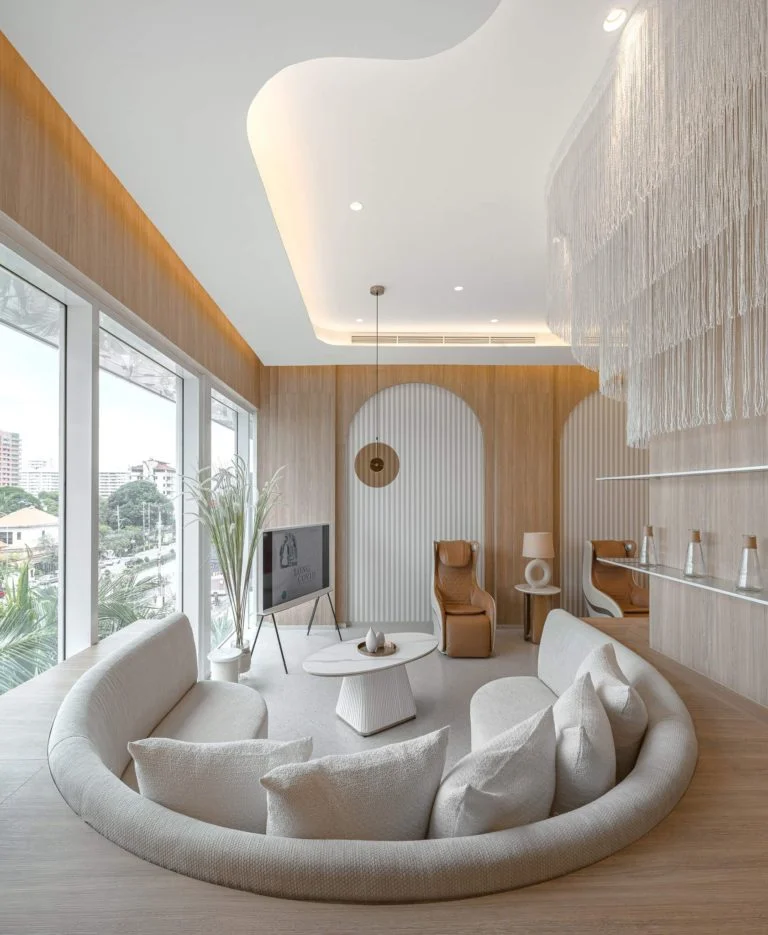In the highly competitive hospitality industry, hotels continuously seek innovative ways to enhance guest experiences and drive revenue growth. One effective strategy gaining momentum is the implementation of wellness programs, including weight loss initiatives, that offer significant benefits to hotel guests. These programs attract health-conscious travelers and contribute to increased profitability through various channels. As a hotel revenue-generating specialist with years of experience, I will explore the diverse advantages of wellness program benefits for happy guests and demonstrate how they can help hotels maximize revenue. By maximizing hotel revenue with weight loss programs, hotels can tap into a growing market of wellness-focused travelers and create unique, engaging experiences that set them apart from the competition.
Critical Takeaways:
- Attract health-conscious travelers and increase occupancy rates.
- Enhance guest loyalty and encourage repeat bookings.
- Boost ancillary revenue through spa services, fitness classes, wellness workshops, and healthy dining options.
- Differentiate your hotel as a wellness destination.
- Leverage dynamic pricing strategies to increase revenue.
- Utilize data analytics for ongoing program improvements.
- Market wellness programs effectively via social media and influencer collaborations.
- Offer personalized, high-quality wellness experiences.
- Foster guest satisfaction and positive reviews.
- Drive group bookings, extend stays, and increase direct bookings.
Enhancing Guest Experience through Wellness Programs
Attracting Health-Conscious Travelers
Wellness programs are particularly appealing to health-conscious travelers who prioritize well-being during their stay. These guests actively seek hotels that offer comprehensive wellness amenities, such as weight loss programs, yoga classes, and holistic treatments. By promoting these wellness program benefits for happy guests, hotels can attract a niche market that values wellness experiences and is willing to pay a premium for them. A well-structured wellness program, including weight loss and fitness services, can position your hotel as a go-to destination for health-oriented travelers.
Increasing Occupancy Rates
Hotels with robust wellness programs often see increased occupancy rates. Health-conscious travelers are more inclined to choose hotels offering tailored wellness experiences, particularly those addressing weight loss, detox, or fitness needs. This higher demand can justify higher room rates, especially during peak seasons. Additionally, targeted marketing efforts focusing on these wellness offerings can help hotels fill rooms even during slower periods, leading to a steady revenue stream.
Boosting Ancillary Revenue
The benefits of wellness programs extend far beyond room bookings. A well-executed wellness initiative can significantly boost ancillary revenue streams, including spa services, personal training sessions, and wellness workshops. For example, a luxury resort in Bali experienced a 40% surge in ancillary revenue after introducing a comprehensive wellness program, which included detox retreats, fitness boot camps, and holistic treatments. By offering a variety of wellness services, hotels can capitalize on additional revenue opportunities.
Differentiating Your Hotel in a Competitive Market
Setting Your Hotel Apart
In a crowded hospitality market, differentiation is essential for standing out. Offering unique wellness program benefits for happy guests allows your hotel to distinguish itself from competitors. Wellness programs, including weight loss retreats and mindfulness workshops, attract a specific clientele while enhancing your hotel’s brand image. By positioning the hotel as a leading wellness destination, you can appeal to both leisure and business travelers seeking rejuvenation.
Real-Life Example: Success Stories in Wellness
Consider the case of a mountain resort in Switzerland that implemented seasonal wellness retreats. The resort experienced a 25% rise in occupancy rates and a notable increase in guest satisfaction scores. This real-life success story illustrates how investing in wellness programs can yield tangible benefits for hotels, making them attractive destinations for health-oriented travelers.
Maximizing Revenue with Personalized Wellness Program Benefits for Happy Guests
Offering Tailored Wellness Experiences
Personalization is a major trend in the wellness industry. Guests appreciate customized wellness plans that cater to their specific needs and preferences, such as weight loss programs tailored to individual fitness goals. By offering tailored wellness experiences, hotels can command higher rates and foster guest loyalty. For instance, a personalized weight loss program with dietary consultations and fitness coaching can make guests feel more valued, enhancing their overall experience.
Leveraging Dynamic Pricing
Dynamic pricing is an effective strategy for optimizing revenue. Wellness programs, especially those with limited availability or high demand, can create a sense of urgency and justify premium pricing. Hotels can adjust room rates based on demand for wellness services, leading to potential revenue increases of up to 15%. Special wellness packages, such as weekend weight loss retreats, can be priced higher during peak travel seasons.
Read Also: Maximizing Revenue with Effective Hotel Security Risk Assessments: 5 Essential Steps
Utilizing Data Analytics for Continuous Improvement
Data analytics play a crucial role in optimizing wellness programs. By analyzing guest feedback, participation rates, and booking patterns, hotels can continuously enhance their wellness offerings. This not only boosts guest satisfaction but also encourages repeat bookings and drives higher revenue. For example, tracking the popularity of specific wellness classes or weight loss workshops can help hotels fine-tune their program schedules.
Marketing Strategies for Promoting Wellness Programs
Effective Use of Social Media and Influencer Partnerships
Marketing plays a crucial role in the success of wellness programs. Hotels should leverage social media platforms, email campaigns, and partnerships with wellness influencers to promote their offerings. Highlighting guest testimonials, weight loss success stories, and real-life experiences can help attract potential guests. Collaborating with influencers who have a strong following in health and wellness can expand the hotel’s reach and attract a global audience.
Real-Life Example: Marketing Success Through Influencers
A boutique hotel in California used Instagram partnerships with wellness influencers to market its wellness program. This strategy resulted in a 30% increase in bookings and significantly broadened the hotel’s reach. Influencers shared their personal experiences of the hotel’s wellness offerings, including weight loss retreats and detox programs, which appealed to a health-conscious audience.
Building Guest Loyalty through Wellness Programs
Enhancing Guest Satisfaction
Wellness programs greatly enhance guest satisfaction by offering holistic wellness experiences. Incorporating weight loss coaching, nutritious meal plans, yoga classes, and spa treatments into the guest experience ensures a memorable stay. Satisfied guests are more likely to return, recommend your hotel to others, and leave positive reviews.
Creating Loyalty Programs for Wellness Travelers
Introducing loyalty programs that reward guests for participating in wellness activities can foster repeat business. Offering discounts on future stays or exclusive access to wellness events incentivizes guests to return, thereby boosting long-term revenue. A program that tracks guest progress in weight loss or fitness goals can add a personal touch, making guests feel more connected to the hotel.
Encouraging Positive Online Reviews
Positive reviews are instrumental in attracting new guests. Wellness program benefits for happy guests often lead to glowing reviews, as guests appreciate the value-added services that enhance their well-being. Encouraging guests to share their experiences on platforms like TripAdvisor and social media can amplify the hotel’s reputation.
Increasing Ancillary Revenue through Diverse Wellness Offerings
Spa Services and Treatments
Spa services form the backbone of many wellness programs, offering treatments ranging from massages to facials. Such services cater to guests looking to relax and rejuvenate, and they contribute significantly to ancillary revenue. A premium weight loss program that includes therapeutic massages can appeal to guests looking to complement their fitness efforts with relaxation.
Read Also: 5 Essential Hotel Security Tips to Maximize Revenue
Fitness Classes, Workshops, and Seminars
Offering fitness classes such as yoga, pilates, and weight loss boot camps adds value to a hotel’s wellness program. These classes can either be included in packages or offered at an additional fee, thus increasing revenue. Furthermore, hosting workshops on nutrition, stress management, or fitness can provide guests with valuable experiences while generating additional income.
Nutritious Food and Beverage Options
Providing healthy food options such as organic meals, detox drinks, and customized dietary plans aligns with the goals of a wellness program. Guests who are on weight loss journeys are willing to pay extra for nutritious dining options that support their wellness goals, thereby boosting the hotel’s food and beverage revenue.
Leveraging Technology to Enhance Wellness Programs
Wellness Apps and Digital Platforms
Integrating wellness apps into the hotel experience can provide personalized digital wellness plans, track progress, and offer virtual classes. These technological innovations can attract tech-savvy guests who appreciate convenience and customized wellness experiences.
Virtual Wellness Experiences
Virtual wellness experiences, including online yoga classes or virtual weight loss coaching sessions, cater to guests who prefer to engage in wellness activities remotely. Offering virtual options extends the hotel’s wellness program to a broader audience.
Data-Driven Personalization
Collecting data on guest preferences allows hotels to personalize wellness program benefits for happy guests. Data-driven personalization helps cater to individual needs, improving guest satisfaction and loyalty.
Creating a Sustainable Wellness Program
Implementing Eco-Friendly Wellness Practices
Sustainable wellness practices, such as using organic products and promoting eco-friendly activities, appeal to environmentally conscious travelers. Integrating sustainability into wellness programs not only enhances the hotel’s reputation but also attracts guests who prioritize green initiatives.
Partnering with Local Wellness Providers
Collaborating with local wellness providers, such as organic farms or fitness studios, adds authenticity to the hotel’s wellness offerings. These partnerships also support the local community and offer guests unique, localized experiences.
Conclusion: The Long-Term Value of Wellness Programs
Implementing wellness program benefits for happy guests, including weight loss and personalized wellness initiatives, can significantly boost hotel revenue, increase occupancy, and build guest loyalty. By offering tailored experiences, utilizing technology, and promoting sustainable practices, hotels can position themselves as premier wellness destinations. Investing in these programs not only enhances guest well-being but also drives long-term profitability.
Contact Emersion Wellness today to learn how our expert team can help you design and implement a successful wellness program tailored to your hotel’s needs. Visit Emersion Wellness to explore our offerings and discover strategies to maximize your hotel’s revenue through innovative wellness solutions.
Read Also: Lobby Hotel Design Ideas to Boost Guest Experience (and Revenue!)




